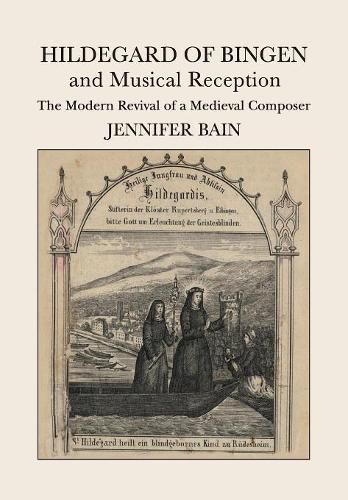Readings Newsletter
Become a Readings Member to make your shopping experience even easier.
Sign in or sign up for free!
You’re not far away from qualifying for FREE standard shipping within Australia
You’ve qualified for FREE standard shipping within Australia
The cart is loading…






Since her death in 1179, Hildegard of Bingen has commanded attention in every century. In this book Jennifer Bain traces the historical reception of Hildegard, focusing particularly on the moment in the modern era when she began to be considered as a composer. Bain examines how the activities of clergy in nineteenth-century Eibingen resulted in increased veneration of Hildegard, an authentication of her relics, and a rediscovery of her music. The book goes on to situate the emergence of Hildegard’s music both within the French chant restoration movement driven by Solesmes and the German chant revival supported by Cecilianism, the German movement to reform Church music more generally. Engaging with the complex political and religious environment in German speaking areas, Bain places the more recent Anglophone revival of Hildegard’s music in a broader historical perspective and reveals the important intersections amongst local devotion, popular culture, and intellectual activities.
$9.00 standard shipping within Australia
FREE standard shipping within Australia for orders over $100.00
Express & International shipping calculated at checkout
Since her death in 1179, Hildegard of Bingen has commanded attention in every century. In this book Jennifer Bain traces the historical reception of Hildegard, focusing particularly on the moment in the modern era when she began to be considered as a composer. Bain examines how the activities of clergy in nineteenth-century Eibingen resulted in increased veneration of Hildegard, an authentication of her relics, and a rediscovery of her music. The book goes on to situate the emergence of Hildegard’s music both within the French chant restoration movement driven by Solesmes and the German chant revival supported by Cecilianism, the German movement to reform Church music more generally. Engaging with the complex political and religious environment in German speaking areas, Bain places the more recent Anglophone revival of Hildegard’s music in a broader historical perspective and reveals the important intersections amongst local devotion, popular culture, and intellectual activities.